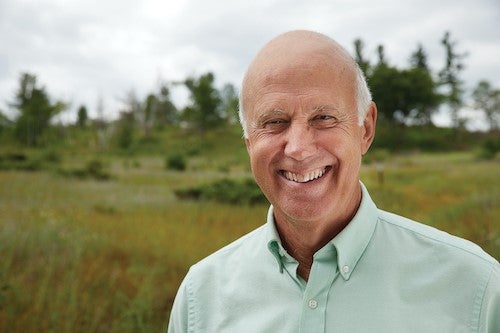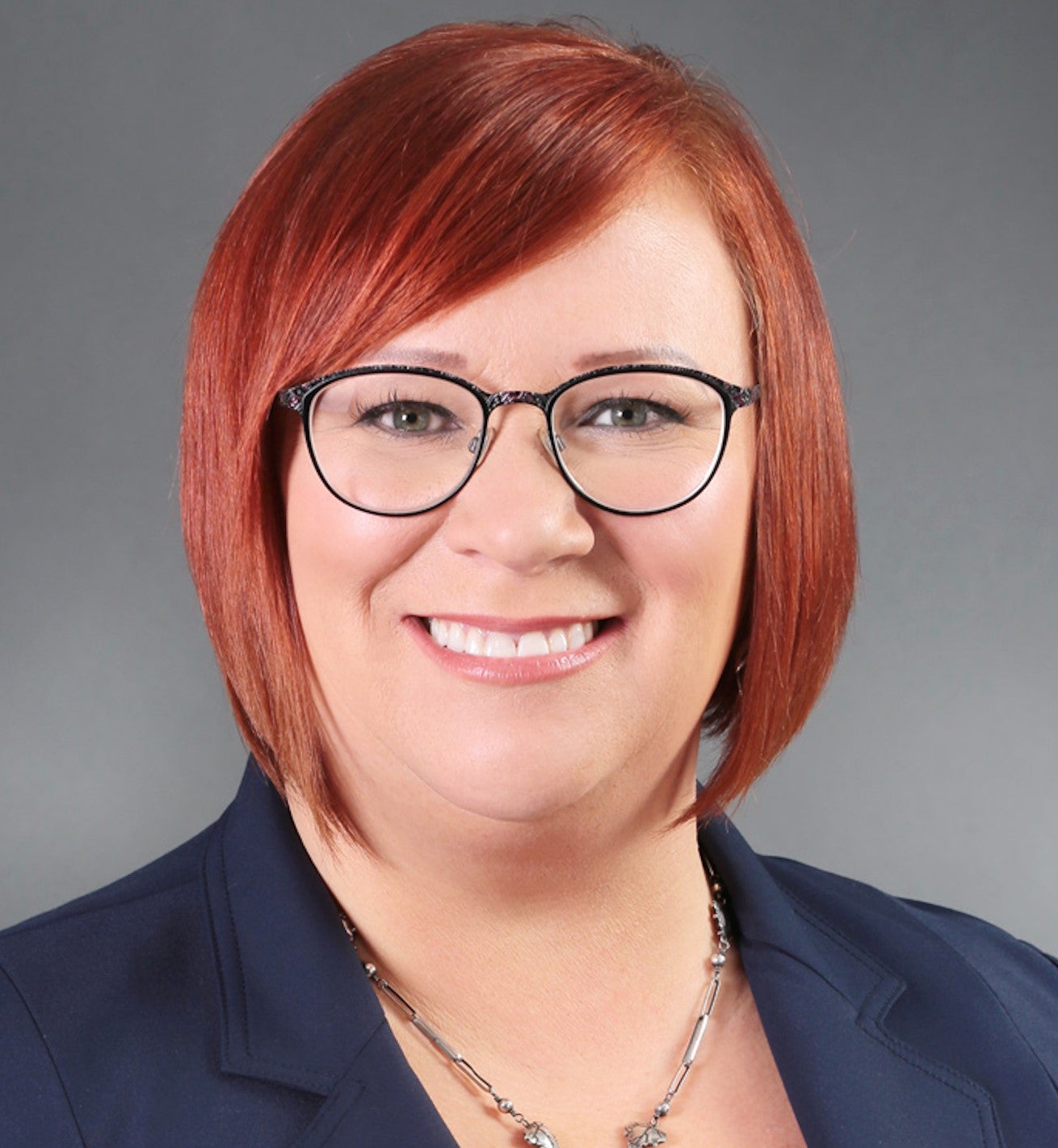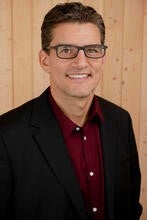Editor:
Brandon Sweet
University Communications
bulletin@uwaterloo.ca
President emeritus and distinguished alumnus named to Order of Canada

A president emeritus of Waterloo and an alumnus and former member of the University’s Board of Governors have been appointed to the Order of Canada.
Feridun Hamdullahpur and John Lounds were named members of the Order of Canada on December 29, 2022. Hamdullahpur’s honour is in recognition of his groundbreaking research in mechanical and mechatronics engineering and his visionary leadership in academia. Lounds, former president and CEO of Nature Conservancy of Canada (NCC), was honoured for his substantial contributions to land conservation across the country.

Hamdullaphur was Waterloo’s sixth president and vice-chancellor, beginning his first of two terms in 2010. During his leadership, the University saw significant growth in several areas, including at its campuses and initiatives focusing on student support and development. He was one of 10 university presidents to join the United Nations’ HeForShe IMPACT 10x10x10 global campaign for gender equity, and he established the Equity Office and the President’s Anti-racism Taskforce. During his presidency, he oversaw the creation of more than 7,500 jobs and $2.3 billion in revenue through entrepreneurship programs at the University. Hamdullahpur is a professor in Waterloo Engineering and serves as chancellor of International Business University.
“In the decade Feridun Hamdullahpur led the University of Waterloo as president and vice-chancellor, the institution continued to expand its global reach while making significant contributions to Canada through its dedication to research excellence, innovation and entrepreneurship, and experiential learning opportunities for students,” said Cindy Forbes, chair of Waterloo’s Board. “On behalf of the Board of Governors of the University of Waterloo, I congratulate him on this fitting and deserved honour.”

Photo by Mike Ford.
John Lounds earned his Bachelor of Environmental Studies in planning from Waterloo in 1978. He’s worked to protect biodiversity and preserve some of the country’s most threatened landscapes. Lounds was at NCC for 24 years. The organization saw considerable success during his time at the helm, helping conserve 15 million hectares of land, water and habitats for species at risk across Canada. He served as a member of the University’s Board of Governors from 2013 to 2019.
“Waterloo graduates change lives and communities with their creative and collaborative approaches to solving big challenges, as illustrated by John Lounds’ remarkable accomplishments in environmental conservation,” said Vivek Goel, president and vice-chancellor of Waterloo. “This institution and the whole country have benefitted from his leadership and dedication, and the University community congratulates him on this special honour.”
Hamdullahpur and Lounds are among 99 new appointments to the Order of Canada announced by Her Excellency the Right Honourable Mary Simon, Governor General of Canada. They will receive their insignia at a later date.
Writing and Communication Centre services for faculty in the winter term
A message from the Writing and Communication Centre (WCC.)
Classroom Introductions to the WCC
The Writing and Communication Centre offers a quick in-person introduction to the services and programs we have available. We’ll come into your classroom and show your students what services we have available and how easily they can access them.
Just fill out the request form on our website, and our Workshops and Integrated Programs Associate will contact you to discuss your next steps. It's that simple!
WCC Introductions | Writing and Communication Centre (uwaterloo.ca)
WCC Course-integrated Support
This program supports faculty, (student) associations, and research groups in writing and multimodal practices in their respective virtual and/or classroom learning environment by focusing on creating autonomy/agency in student writing, providing opportunity and resources for writing support , and by building rhetorical distance to check assumptions.
Because we receive a large number of requests from faculty, student associations, and research groups, we can typically only deliver one workshop or seminar per request. To help us prioritize your request, please submit your request at least four weeks before the delivery date.
Support for Classes | Writing and Communication Centre (uwaterloo.ca)
Introducing the Douglas Wright Engineer-in-Residence for 2023
A message from the Faculty of Engineering.

The Department of Civil and Environmental Engineering is pleased to welcome Kelly Scherr, P. Eng., MBA, FEC, as the 2023 Douglas Wright Engineer-in-Residence.
Kelly is a proven executive leader in municipal infrastructure who is committed to building resilient, inclusive and effective teams to deliver and manage great assets for cities. As the Deputy City Manager of Environment & Infrastructure with the City of London, she currently leads a team of over 800 who deliver a full suite of water, wastewater, drainage, solid waste, environmental, transportation, construction administration, infrastructure operations, rapid transit, major projects, forestry and fleet services to a city of over 430,000 people.
As the Chief Administrative Officer for the Elgin and Lake Huron Area Primary Water Supply Systems, Kelly also leads the provision of safe, reliable and affordable drinking water to over a half-million Ontarians in fifteen member municipalities.
Kelly has over 20 years experience delivering plans, projects, programs and policies in water, wastewater, stormwater, and transportation. Prior to joining the City of London in 2016, Kelly spent 14 years in a variety of roles at the City of Regina, where she led the on-time and on-budget construction of a new P3 wastewater treatment plant and CFL stadium, the planning of 37.5 acres of inner city revitalization, and the creation of a new corporate centre of excellence in project management. She also held leadership roles in urban planning, development management, construction administration, and municipal enforcement, including zoning, building standards, bylaw enforcement and parking.
Kelly attended the University of Regina, where she received her degree in Regional Environmental Systems Engineering. Kelly also has a Master of Business Administration, a Graduate Certificate in Leadership and is a Fellow of Engineers Canada.
Kelly is a die-hard Saskatchewan Roughriders fan. In addition to spending weekends at their “affordable cottage alternative” near Lake Huron, Kelly and her husband enjoy hiking, cooking, gardening, live theatre and sports, and exploring the great local craft beer and food scene in London and Southwest Ontario.
The Douglas Wright Engineer-in-Residence program
The Douglas Wright Engineer-in-Residence (EIR) program is a new initiative in the Department of Civil and Environmental Engineering, which falls within the mandate of the Turkstra Chair in Urban Engineering, who would lead the selection and oversight of the Douglas Wright Engineer-in-Residence. Accredited undergraduate programs often engage with senior professionals to serve in multiple capacities as a resource for faculty and students. Under the Turkstra Chair’s direction, the Department would invite a practicing engineer who serves in a leadership role in industry to fill this position. Engaging EIRs is one way that the Department of Civil and Environmental Engineering fosters a diversity of perspectives in the education of future and current graduate engineers.
The Douglas Wright Engineer-in-Residence program is very fittingly named after the first Dean of Engineering at the University of Waterloo, Douglas Wright. Students and faculty of the University of Waterloo know that the DWE building is the Douglas Wright Engineering (DWE) building, which was the first engineering building on campus.
The EIR program more broadly is an avenue for mutually beneficial engagement between the academic community and the engineering practice community. The Turkstra Chair’s activities are grounded in educational collaboration with the practice community, where the EIR is selected to foster and develop industry-academic engagements as they promote leadership among engineering students for the betterment of our cities now and into the future.
An Indigenous sense of place

By Heather Bean. This article was originally published in the Fall 2022 issue of Waterloo Magazine.

Dr. David Fortin shared that Indigenous design is finally receiving the recognition it deserves.
Public and private institutions alike are looking for designers to include Indigenous “elements” in the design of buildings and landscapes. But Fortin, a citizen of the Métis Nation of Ontario, cautions that Indigeneity isn’t an aesthetic.
Honouring an Indigenous relationship to land requires a lot more than eco-friendly building materials, says Fortin, a professor in Waterloo’s School of Architecture.
“An Indigenous sense of place would be one where there is reciprocity with land; where we aren’t just taking from land but adding back to it in a way that benefits all of the life forms around us,” Fortin said. “I don’t want to just call it ‘sustainability.’ It’s a reverence for all life. Design should reflect relations that go beyond humans, to include animals and plants and water. All that stuff is sacred. That’s at the core of Indigenous design. There’s a spirituality to it.”
Fortin and Adrian Blackwell (BES ’89, BArch ’91), a fellow Waterloo architecture professor, are members of Architects Against Housing Alienation: a collective of six Canadian architects, artists and academics who will represent Canada at the 2023 Venice Biennale, the international expo of the world’s architectural innovations and achievements.
Raising awareness about Canada's housing crisis
Fortin and his curatorial team will be including Indigenous knowledge and perspectives in Canada’s pavilion, which the group hopes to transform into a campaign headquarters to raise awareness about, and offer solutions to, Canada’s housing crisis.
“A housing crisis is not something the international community necessarily associates with Canada,” Fortin said. “The fact that we have the level of problems that we do is something the world should know about.”
According to the National Bank of Canada’s housing report, an average-income household now pays more than half of its income towards a mortgage for a house in Canada’s cities. At the same time, Canadian renters have been caught up in the financialization trend as large investors have begun to buy rental properties as investments — and raise rents, often dramatically.
It's more than just "looking" more Indigenous
“If our cities ‘look’ more Indigenous, but we still have economic disparity, more violence, more divisiveness and we’re still destroying the planet, I’m concerned that we are disrespecting the teachings,” Fortin said. “This is not a style. It’s a way of being in the world. We need a bigger societal shift in the way we inhabit the world.” About 235,000 Canadians experienced homelessness in 2021.
“Our focus is on those who have been totally punted out of the system. And that number is growing very quickly,” Fortin said. “Young graduates with university degrees who should have wonderful futures ahead of them are full of trepidation right now.”
This isn’t Fortin’s first Biennale. Along with Plains Cree Professor and Canada Research Chair, Gerald McMaster, he was co-curator of Canada’s 2018 entry: Unceded: Voices of the Land, presented by internationally acclaimed Métis and Blackfoot architect Douglas Cardinal.
Growing up in Prince Albert, Saskatchewan, “a city kid,” Fortin said he “really loved calculus and statistics, and then also really loved to blast music and just draw.” He found his way to architecture when an undergraduate professor mentioned Italian architect Paolo Solari’s concept of archeology — a portmanteau of “architecture” and “ecology.” “I looked that up and saw these incredible drawings,” Fortin recalls.
“I’ve always been a science fiction fanatic, and here were these visionary, futuristic worlds.” Architecture school in Calgary opened his mind to even more possibilities: “You see things you never would have imagined. And there’s a tremendous value to that.”
At the same time, he notes, architectural education in the 1990s instilled a Eurocentric and individualistic definition of excellence.
“Architecture was being taught through a highly theoretical lens. There was a major emphasis on producing stuff that looked cool.” The result was often awe-inspiring buildings that lacked a relationship to their environments or the people who would live and work in them. “Even if you’re working in Saskatoon or Brooks, Alberta, you’re studying these multimillion-dollar projects in major urban centres, and that’s the architecture you’re taught you should reproduce.”
Read the rest of the article in Waterloo magazine.
Participants needed for weight-loss study
A message from the Metabolism, Exercise Training and Sex Differences (METS) lab.

Researchers from the Metabolism, Exercise Training and Sex Differences (METS) lab in the Department of Kinesiology and Health Sciences are seeking sedentary, overweight males and females aged 18-45 yearsfor a research study investigating whether the addition of two nutritional supplements to an exercise regime can improve the effects of exercise training on ‘high-quality weight loss’. ‘High-quality weight loss’ is weight loss where you lose the most amount of body fat while maintaining muscle mass. It is important to induce ‘high-quality weight loss’ because maintaining muscle mass during weight loss can help prevent weight regain. We will also determine if these supplements induce greater gains in muscle strength, aerobic fitness, and insulin sensitivity compared with exercise training alone. We are recruiting both males and females for this study because there is evidence that females have a harder time losing weight and that insulin sensitivity doesn’t improve as much in females in response to exercise training, so by recruiting both males and females we can determine the effectiveness of the intervention in both males and females.
If you choose to take part in this trial you will be asked to participate in a series of preliminary testing (4 visits), followed by a series of training sessions (36 visits), then post-testing visits (3 visits) and have blood samples, ultrasound measurements, and a body composition scan taken prior to, and after the training and supplementation period. Training will take place three times a week and will consist of 30 minutes of aerobic exercise and 30 minutes of resistance exercise. Aside from the potential for weight loss, there are many benefits to participating in this study including: 1) getting information about your aerobic fitness, strength and body composition and seeing how these outcomes improve with training, 2) receiving a personalized training regime that is tailored to your fitness level and that will be adjusted throughout the 12-week program based on your progress, and 3) receiving supervised training from qualified personnel so that you learn proper exercise and lifting techniques. In addition, participants will receive a $100 gift card upon completion of the study.
If you are interested in participating in this study or have any questions, please contact Jennifer Wilkinson, Department of Kinesiology at 905-414-7897 or j7wilkin@uwaterloo.ca. We encourage all members of the community to participate, so please tell your family and friends as well.
Link of the day
When and Where to get support
Students can visit the Student Success Office online for supports including academic development, international student resources, immigration consulting, leadership development, exchange and study abroad, and opportunities to get involved.
Instructors looking for targeted support for developing online components for blended learning courses, transitioning remote to fully online courses, revising current online courses, and more please visit Agile Development | Centre for Extended Learning | University of Waterloo (uwaterloo.ca).
Faculty, staff, post-doc and graduate student instructors can find upcoming teaching and learning workshops, self-directed modules and recordings of previous events on Centre for Teaching Excellence Workshops and Events page.
Instructors can access the EdTech Hub to find support on Waterloo’s centrally supported EdTech tools. The Hub is supported by members of IST’s Instructional Technologies and Media Services, Centre for Teaching Excellence, Centre for Extended Learning and subject matter experts from other campus areas.
Supports are available for employees returning to campus. Visit IST’s Hybrid Work and Technology guidelines and workplace protocols to assist with the transition.
Students with permanent, temporary and suspected disabilities and disabling conditions (medical conditions, injuries, or trauma from discrimination, violence, or oppression) can register with AccessAbility Services for academic accommodations (classroom accommodations, testing accommodations, milestone accommodations).
Instructors can visit AccessAbility Services' Faculty and Staff web page for information about the Instructor/Faculty role in the accommodation process. Instructors/Faculty members are legally required to accommodate students with disabilities. AccessAbility Services (AAS) is here to help you understand your obligations, and to offer services and resources to help you facilitate accommodations.
The Writing and Communication Centre has in-person and virtual services to support grad and undergrad students, postdocs and faculty with any writing or communication project. Services include one-to-one appointments, drop-ins at Dana Porter Library, online workshops, writing groups, English conversation practice, and custom in-class workshops.
Research Ethics: Find yourself with an ethical question, unsure if your work requires an ethics review, or need advice about putting together a research ethics application? Reach out to one of our friendly staff by booking a consultation or email us with your questions.
Co-op students can get help finding a job and find supports to successfully work remotely, develop new skills, access wellness and career information, and contact a co-op or career advisor.
The Centre for Career Action (CCA) has services and programs to support undergrads, grad students, postdocs, alumni, and employees in figuring out what they value, what they’re good at, and how to access meaningful work, co-op, volunteer, or graduate/professional school opportunities. Questions about CCA's services? Live chat, call 519-888-4047, or stop by our front desk in the Tatham Centre 8:30 a.m. to 4:30 p.m., Monday to Friday.
Drop-in to in-person Warrior Study Halls on Thursdays from 5:00 p.m. to 6:30 p.m. in DC and DP. Join a Peer Success Coach to set goals and work independently or in groups each week.
Renison's English Language Institute continues to offer virtual events and workshops to help students practice their English language skills.
If you feel overwhelmed or anxious and need to talk to somebody, please contact the University’s Campus Wellness services, either Health Services or Counselling Services. You can also contact the University's Centre for Mental Health Research and Treatment. Good2Talk is a post-secondary student helpline available to all students.
The Library is here to help, both in person and online. Our spaces are open for access to book stacks, study space, computers and printers, and the IST Help Desk. For in-depth support, meet one-to-one with Librarians, Special Collections & Archives and Geospatial Centre staff. Access our resources online for anywhere, anytime learning and research. Full details on current services and hours are available on the Library’s COVID-19 Update webpage.
The Faculty Association of the University of Waterloo (FAUW) continues to advocate for its members. Check out the FAUW blog for more information.
The University of Waterloo Staff Association (UWSA) continues to advocate for its members. Check out the UWSA blog for more information.
The Office of Equity, Diversity, Inclusion & Anti-Racism (EDI-R) works with students, faculty and staff across campus to advance equity and Anti-racism through evidence-based policies, practices and programs. If you have a concern related to Anti-racism and/or equity, please complete our intake form.
The Sexual Violence Prevention and Response Office (SVPRO) supports all members of the University of Waterloo campus community who have experienced, or been impacted, by sexual violence. This includes all students, staff, faculty and visitors on the main campus, the satellite campuses, and at the affiliated and federated Waterloo Institutes and Colleges. For support, email: svpro@uwaterloo.ca or visit the SVPRO website.
The Office of Indigenous Relations is a central hub that provides guidance, support, and resources to all Indigenous and non-Indigenous campus community members and oversees the University's Indigenization strategy.
The Waterloo Indigenous Student Centre, based at United College, provides support and resources for Indigenous students, and educational outreach programs for the broader community, including lectures, and events.
WUSA supports for students:
Peer support - MATES, Glow Centre, RAISE, Women’s Centre - Click on one of the links to book an appointment either in person or online for the term.
Food Support Service food hampers are currently available from the Turnkey Desk 24/7 in the Student Life Centre. Drop-off locations are also open again in SLC, DC, DP, SCH, and all residences.
Co-op Connection all available online.
Centre for Academic Policy Support - CAPS is here to assist Waterloo undergraduates throughout their experience in navigating academic policy in the instances of filing petitions, grievances and appeals. Please contact them at caps@wusa.ca.
WUSA Student Legal Protection Program - Seeking legal counsel can be intimidating, especially if it’s your first time facing a legal issue. The legal assistance helpline provides quick access to legal advice in any area of law, including criminal. Just call 1-833-202-4571.
Empower Me is a confidential mental health and wellness service that connects students with qualified counsellors 24/7. They can be reached at 1-833-628-5589.
GSA-UW supports for graduate students:
The Graduate Student Association (GSA-UW) supports students’ academic and social experience and promotes their well-being.
Advising and Support - The GSA advises graduate students experiencing challenges and can help with navigating university policies & filing a grievance, appeal, or petition.
Mental Health covered by the Health Plan - The GSA Health Plan now has an 80 per cent coverage rate (up to $800/year) for Mental Health Practitioners. Your plan includes coverage for psychologists, registered social workers, psychotherapists, and clinical counselors.
Dental Care - The GSA Dental Plan covers 60 to 70 per cent of your dental costs and by visiting dental professionals who are members of the Studentcare Networks, you can receive an additional 20 to 30 per cent coverage.
Student Legal Protection Program - Your GSA fees give you access to unlimited legal advice, accessible via a toll-free helpline: +1-833-202-4571. This advice covers topics including housing disputes, employment disputes, and disputes with an academic institution.
The Graduate House: Open Monday to Tuesday 11:30 a.m. to 7:00 p.m. and Wednesday to Friday 11:30 a.m. to 9:00 p.m. We’re open to all students, faculty, staff, and community members. The Graduate House is a community space run by the GSA-UW. We’re adding new items to the menu. Graduate students who paid their fees can get discounts and free coffee.
When and Where
Warriors Game Day Tickets and Season Passes, on sale now. Cheer on your Warriors W/M Basketball, Football W/M Hockey and W/M Volleyball teams at home during the 2022-23 season. Purchase today.
Lectures and classes begin, Monday, January 9, 2023.
Co-operative work term begins, Monday, January 9, 2023.
Dynamics of the Arctic Ocean’s Beaufort Gyre, Tuesday, January 10, 2023, 3:00 p.m., MC 5501.
Distinguished Lecture Series featuring Sheila McIlraith, Professor, Department of Computer Science, U of T, "Reward Machines: Formal Languages and Automata for Reinforcement Learning," Wednesday, January 11, 2023, 10:30 a.m., DC 1302.
NEW - Knowledge Integration seminar: “Prioritizing Wellness”, featuring speaker Anvita Desai, BKI’21, Equity, Inclusion, Diversity, and Anti-Racism Specialist on Ontario Health’s Provincial Equity and Indigenous Health portfolio, Friday, January 13, 2:30 p.m., EV3-1408.
Velocity presents Innovation Ecosystem Mixer, Friday, January 13, 4:00 p.m. to 6:00 p.m., SCH 228.
Deadline to register for Centre for Extended Learning (CEL) "Getting Ready to Facilitate Online Courses: TA Training – Winter 2023" course, Monday, January 30, 2023.
Positions available
On this week's list from the human resources department, viewable on the UWaterloo Talent Acquisition System (iCIMS):
- Job ID# 2022-9732 - Program and Resources Co-ordinator - Campus Housing, USG 6
- Job ID# 2022-9681 - Recruitment & Student Engagement Coordinator - 2625 Environment-Dean's Office, USG 8
- Job ID# 2022-9722 - Mechanic I - Plumber - Plant Operations, CUPE
- Job ID# 2022-9573 - Mechanical Engineering Lab Instructor – Materials - Mechanical and Mechatronics Engineering, USG 9 - 10
- Job ID# 2022-9648 - Senior Manager, Research Contracts - Office of Research, USG 12
- Job ID# 2022-9600 - Assistant Director, Shared Services - Campus Housing, USG 13
- Job ID# 2022-9382 - Exam Centre Manager - AccessAbility Services, USG 7
- Job ID# 2022-9720 - Health Information Specialist - Campus Wellness, USG 8
- Job ID# 2022-9718 - Operations Coordinator - AccessAbility Services, USG 6
- Job ID# 2022-9726 - Residence Life Co-ordinator - Campus Housing, USG 7
- Job ID# 2022-9336 - Communications Officer - UWSA, USG 9
- Job ID# 2022-9728 - Financial Coordinator - School of Optometry & Vision Science, USG 7
- Job ID# 2022-9743 - Health Promotion and Evaluation Specialist - Campus Wellness, USG 9
- Job ID# 2022-9653 - Indigenous Research Advisor - Office of Research, USG 10
- Job ID# 2022-9383 - Membership and Volunteer Coordinator - UWSA, USG 6
- Job ID# 2022-9701 - Research Equity Advisor - Vice President, Research and International, USG 10
- Job ID# 2022-9585 - Indigenous Student Service Specialist - Student Service Centre, USG 5
- Job ID# 2022-9537 - Learning Technologies Analyst - WatSPEED, USG 9 - 11
- Job ID# 2022-9723 - Learning Technologies Analyst - Centre for Extended Learning, USG 8 - 11
- Job ID# 2022-9712 - Recruitment & Admissions Coordinator - Stratford School of Interaction Design and Business, USG 9
- Job ID# 2022-9698 - Specialist, Campus Engagement - Office of the Registrar, USG 9
- Job ID# 2022-9696 - Legal Assistant - Legal and Immigration Services, USG 8
- Job ID# 2022-9512 - Career Advisor - CEE - Centre for Career Action, USG 8 - 10
- Job ID# 2022-9513 - Career Advisor - CEE - Centre for Career Action, USG 8 - 10
- Job ID# 2022-9702 - EDGE Program Assistant - CEE - Centre for Work-Integrated Learning, USG 5
- Job ID# 2022-9691 - Instructional Support Coordinator - CEE - Centre for Work Integrated Learning, USG 8 - 10
- Job ID# 2022-9692 - Instructional Support Coordinator - CEE - Centre for Work Integrated Learning, USG 8 - 10
- Job ID# 2022-9495 - Manager, Finance and Student Award Administration - Graduate Studies and Postdoctoral Affairs, USG 11
Secondments/Internal temporary opportunities
- Job ID# 2022-9715 - Manager, Faculty and Industry Engagement - Waterloo Institute for Sustainable Aeronautics, USG 13
- Job ID# 2022-9714 - Network Technician – IST, USG 6 – 8
- Job ID# 2022-9471 - Sustainability Curriculum Specialist - Sustainability Office, USG 9
- Job ID# 2022-9658 - Registered Nurse - Campus Wellness, USG 9
- Job ID# 2022-9716 - Clinic Operations Manager – Optometry, USG 8
- Job ID# 2022-9654 - Indigenous Research Advisor - Office of Research, USG 10
- Job ID# 2022-9705 - Senior Manager, Marketing and Communications - School of Accounting and Finance, USG 11
- Job ID# 2022-9706 - Student Service Specialist - Student Service Centre, USG 5
- Job ID# 2022-9614 - Educational Developer - CEE - Work-Learn Institute, USG 11
Affiliated and Federated Institutions of Waterloo opportunities